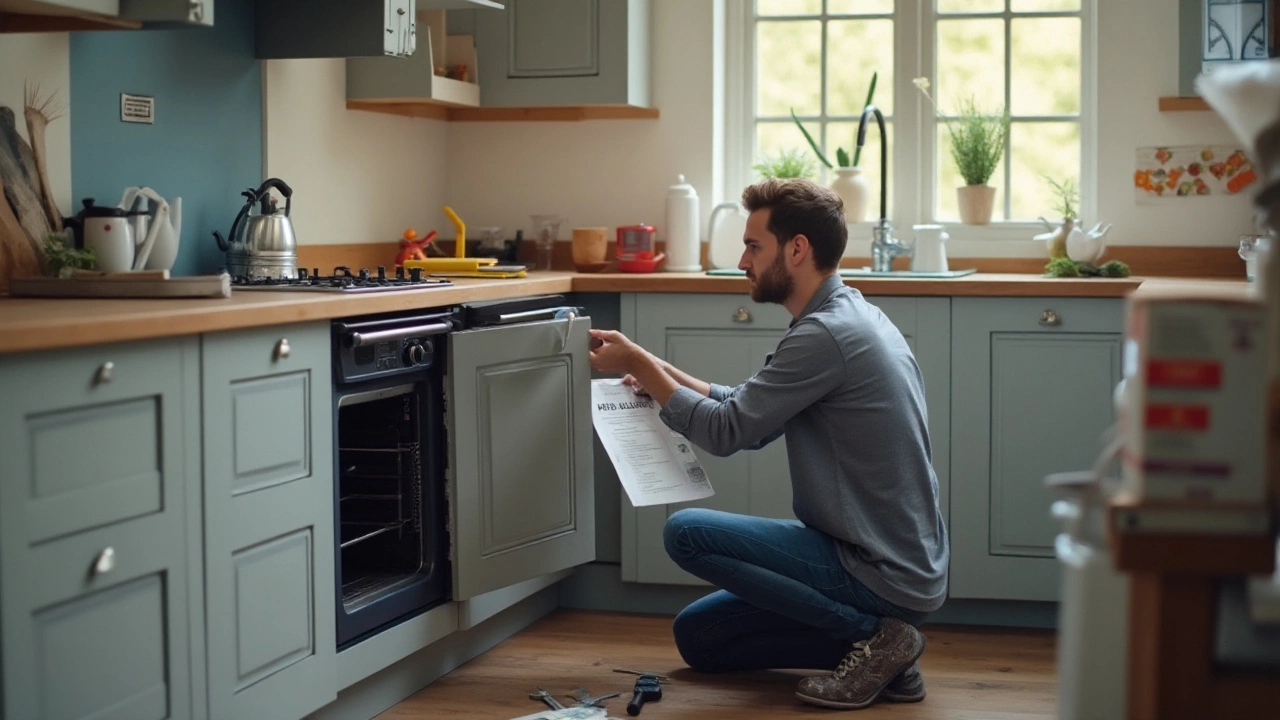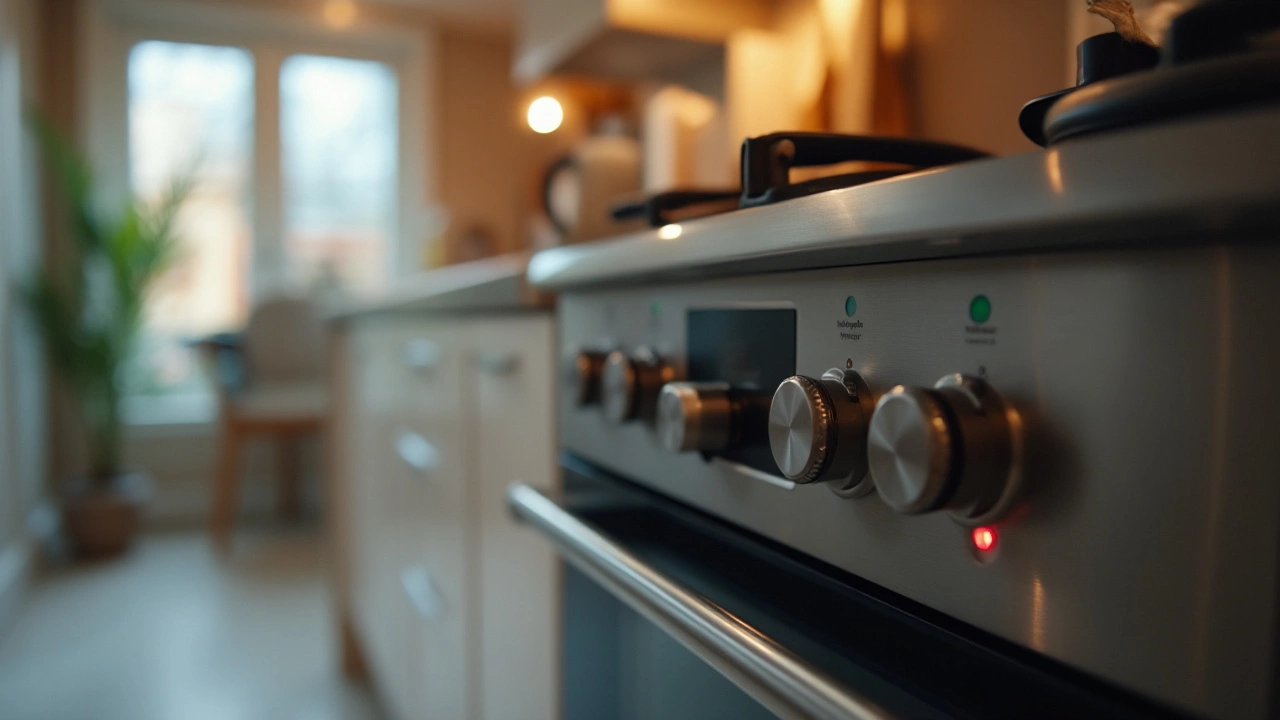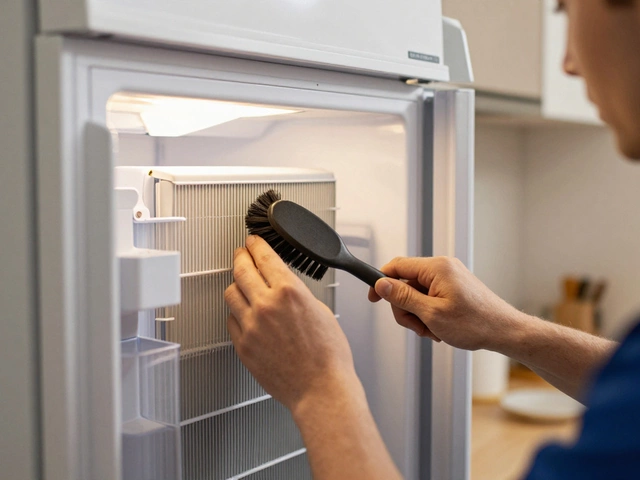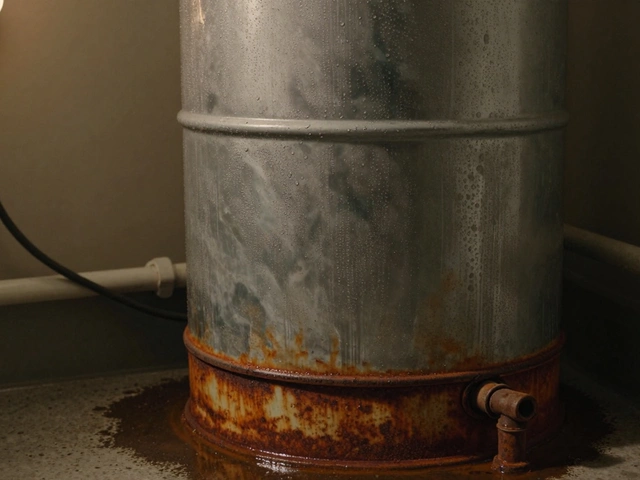Ever wondered if your trusty old oven could last two decades or more? The answer is yes, it really can, with a bit of love and attention. Most ovens are designed to have a lifespan of around 13 to 15 years, but squeezing out another five or even ten years isn't just wishful thinking if you play your cards right.
Among the key factors that influence how long your oven will serve you faithfully is how you use and maintain it. Occasional cleaning, avoiding overheating, and tackling minor issues before they snowball into major repairs can make a world of difference.
So, what's the magic trick to making your oven a golden oldie? Knowing a bit about its quirks and common issues can help. Whether it's fixing a faulty thermostat or simply ensuring the door seals are in good condition, a detailed understanding of what to watch out for can extend its life. Stick around, and we'll dive into practical tips and tricks to keep your oven baking golden brown for years to come.
- The Typical Lifespan of an Oven
- Key Factors in Oven Durability
- Practical Tips for Prolonging Oven Life
- Signs Your Oven Needs a Check-Up
- When to Repair or Replace
- DIY Maintenance Tricks
The Typical Lifespan of an Oven
Most people expect appliances to give out after a few years, but when it comes to oven longevity, things look a bit brighter. Typically, electric ovens are built to last around 13 to 15 years. But, of course, this doesn't mean they'll just conk out exactly on their 15th birthday. With proper care, they can keep on roasting and baking for many more years.
Why do some ovens last longer than others? It's really about the materials and how frequently they're used. Ovens that get daily use wear out faster than those only fired up for special occasions. If you're using your oven a lot, small things can add up to big reductions in lifespan. Keeping an eye on those and doing regular check-ups helps keep your appliance ticking.
What Affects Oven Lifespan?
Several factors play a part in how long your oven will last:
- Quality of Parts: Cheaper ovens might tempt your wallet, but they often come with less durable parts. Investing a bit more upfront can save you in repairs later.
- Maintenance: Regular cleaning and minor repairs go a long way. Simply cleaning spills right away can prevent damage to the inner workings.
- Usage Patterns: How often and how hard your oven works affects its lifespan. More wear and tear equals more to upkeep.
So, if you're gunning for that 20-year mark, these are the things you’ll want to consider. And hey, if it ever feels like it's acting up too often, knowing when to call in the pros for electric oven repair can save you a heap of trouble too.
A study in appliance longevity found that regular maintenance could increase an oven’s lifespan by up to 5 years. That might mean just cleaning those hard-to-reach places or testing the heat elements now and then.
Key Factors in Oven Durability
So, what's the secret sauce to making your oven longevity a reality? Well, it's mostly about understanding the different parts of your oven that take the most heat. Literally.
Build Quality and Brand
Not all ovens are created equal. A lot of times, the durability of an oven can be linked to its build quality and brand reputation. Higher-end brands often use more durable materials and parts, which can give you an extra few years over budget models. It's worth doing a bit of research into brands and models before purchasing if long-term use is your goal.
Regular Maintenance and Cleaning
Regularly cleaning your electric oven not only keeps it looking good but also functioning well. Grease and leftover food can damage the inner parts over time. A simple wipe-down after use, especially after a particularly messy meal, can prevent stubborn build-ups. Every few months, give it a deep clean—focus on the door seals, burners, and the oven surface.
Usage Habits
How you use your oven can significantly affect its lifespan. Constantly running it at max temperature or repeatedly slamming the door shut can wear down components faster. Try to avoid preheating to unnecessarily high temperatures unless the recipe genuinely demands it.
Common Issues and DIY Fixes
Electric ovens often face a handful of common problems, like uneven heating or a malfunctioning thermostat. Knowing when these arise and addressing them promptly—often with simple DIY fixes—can save you from bigger headaches (and costs) down the line. For instance, replacing a faulty thermostat can usually be a DIY fix with the right tools and maybe a YouTube tutorial.
Power Supply Stability
Believe it or not, unstable power supplies can impact your oven’s durability. Frequent power surges or outages can play havoc with the oven's electronics and heating element. Using a surge protector could provide your appliance with an inexpensive shield against these power issues.
Sometimes it's helpful to look at a bit of data to give perspective:
| Component | Expected Lifespan (Years) |
|---|---|
| Heating Element | 8-12 |
| Thermostat | 10-15 |
| Oven Door Seals | 5-10 |
By focusing on these factors, you can enhance your oven's performance and stretch those years of perfect pizzas and flawless roasts.
Practical Tips for Prolonging Oven Life
Keeping your oven in top shape doesn't demand a degree in engineering, just a little common sense and a few regular routines. It's amazing what some simple preventive measures can do. Let's cover some of the basics to ensure your appliance lifespan extends well beyond expectations.
Regular Cleaning is Key
Dirt, grime, and food bits love to accumulate over time. They not only make your oven inefficient but can lead to malfunctions. A good practice is to wipe down the interior and clean the racks every few months.
"Regular maintenance is the backbone of a long-lasting appliance," says Michael Gray, a well-regarded appliance technician with over 25 years in the industry.
Keep the Seals Intact
Inspect the door seals regularly. A worn or broken seal means heat escapes, leading to inefficient cooking and increased energy consumption. If you notice wear and tear, it might be time to replace them.
Mind the Glass
The oven door’s glass should be treated with care. Avoid slamming the door or placing too much pressure on the glass as it could crack. A replacement is usually more costly than simple prevention.
Heat-Wise Cooking
Overloading your oven or frequently running it at its maximum temperature can shorten its life. As a rule of thumb, only use high heat when absolutely necessary and don’t make a habit of roasting turkeys every other day.
Why Sometimes, Less is More
Give your oven a break! If it's on for every meal, it’s bound to wear out faster. Consider using smaller, energy-efficient appliances when cooking small meals.
| Tip | Frequency |
|---|---|
| Clean the interior | Every 3 months |
| Check door seals | Every 6 months |
| Inspect racks and glass | Monthly |
Remember, extending your electric oven’s life is as simple as adding these small yet effective habits to your routine. It’s all about being proactive rather than reactive.
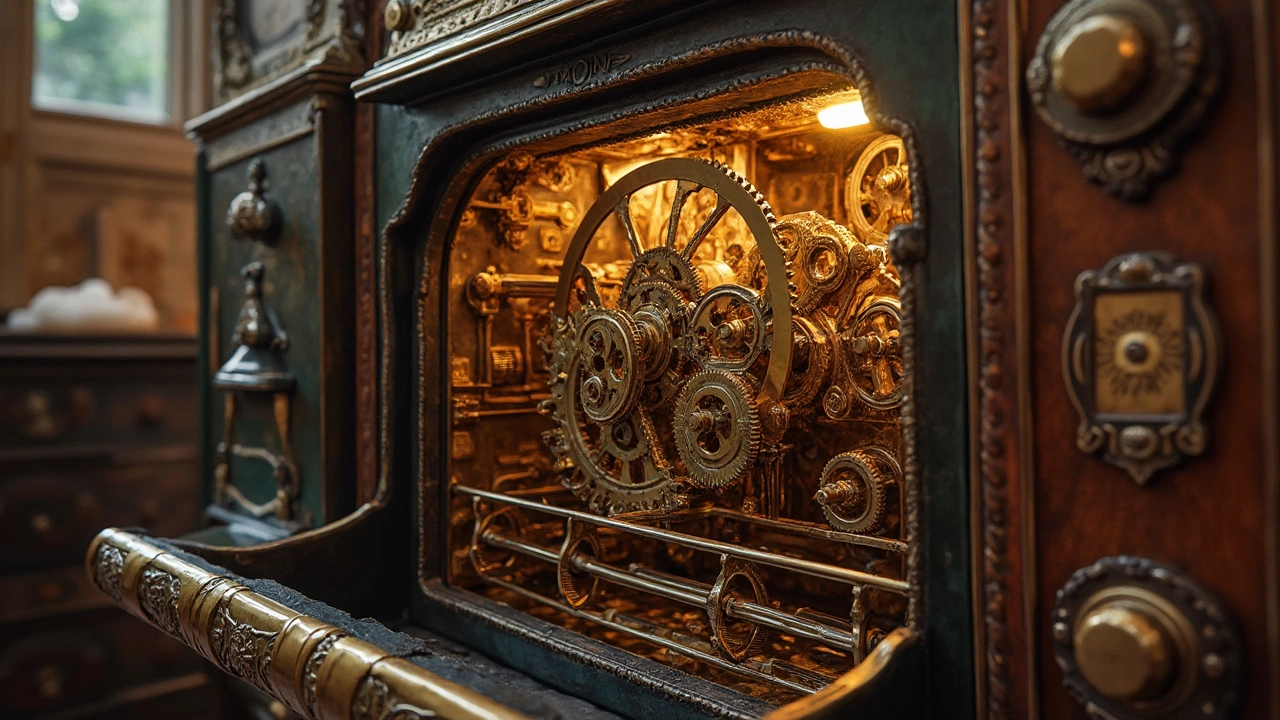
Signs Your Oven Needs a Check-Up
How do you know when your oven is not in its best shape anymore? Knowing the telltale signs can save you a lot of hassle and extend its life. Regular check-ups are key, especially for squeezing out those extra years you want.
Unusual Noises
Is your oven making weird noises? If it's rattling like a freight train, it's time for an inspection. A loose component or, even worse, failing fans could be the culprits here, causing more damage if neglected.
Inconsistent Temperatures
If that trusty electric oven is suddenly baking one cake to a perfect golden brown but incinerating another, the thermostat might be to blame. Ovens with temperature inconsistencies often need a check-up to recalibrate temperature sensors or replace them.
Slow Preheating
An oven that's taking longer than usual to preheat isn't just wasting your time; it's waving a red flag for potential problems. It could be an issue with the heating elements or temperature sensors, and both are a call for some repair magic.
Fading Dials and Displays
When numbers on your oven's dials or digital display have started to fade or act glitchy, it may affect how you use it. Replacing worn-out controls can be an easy fix but left unattended, they could lead to functionality issues.
Odd Smells or Smoke
Notice a burning smell or see smoke when using your oven? While some residue after a cooking marathon might be normal, odd odors or smoke frequently suggest broken seals or internal build-up. Both of which really need fixing to prevent bigger issues.
Paying attention to these signs is your ticket to prolonging your appliance's lifespan. A quick check-up when you first notice something off can prevent costly repairs down the line. You'll keep your kitchen running smoothly and ensure that your appliance stays around for a bit longer.
When to Repair or Replace
Deciding whether to repair or replace an oven isn't always a simple choice. It usually boils down to a few key factors: the age of the oven, the cost of repairs, and how often you use it. If your oven is approaching or past the 15-year mark, that's the time to start weighing your options carefully.
Repair might be the way to go if the electric oven repair cost is less than half the price of buying a new one. As a rule of thumb, minor fixes, like replacing a thermostat or a door seal, are definitely worth doing. These tend to be quick and affordable and don't require a full-on replacement unless there's something seriously wrong in conjunction with these issues.
Signs Replacement is a Better Option
- Your oven's heating is uneven, and multiple repair attempts haven't fixed it.
- There's visible rust or significant structural damage on the oven, which isn't economical to repair.
- The electronics or control panel are fried beyond repair.
- Repair costs steadily approach more than half the price of a new oven.
Appliance lifespan is a game of balance. Sometimes, keeping an old oven soldiering on is worth it because it's familiar and does the job. Other times, investing in a shiny new model not only saves you dinero on constant repairs but might also be more energy-efficient, saving cash on the electricity bill long-term.
Practical Considerations
Consider your kitchen maintenance routine. If an older oven constantly gives you grief, replacement could save you the headache. However, if you've got a sentimental bond with your kitchen buddy, you might be motivated to eek out those last few years of service with dedicated care, neglecting modern conveniences for familiarity.
DIY Maintenance Tricks
Keeping your oven in top shape doesn’t mean you always need to call in the pros. There are plenty of DIY maintenance tricks you can dive into without breaking a sweat, and they’ll help your appliance lifespan stretch even further.
Regular Cleaning
This one sounds basic, but it’s where most of us slip up. Regularly clean the interior of your oven to prevent the buildup of grease and food particles, which can lead to odors and even smoke. Use a mix of baking soda and vinegar for an eco-friendly clean.
Check the Door Seals
If your oven door doesn’t close tightly, heat escapes and your energy bill creeps up while your oven longevity dips down. Inspect door seals regularly and replace worn-out gaskets to maintain efficiency.
Calibrate the Oven Temperature
Over time, ovens may heat less accurately. If your cookies consistently burn or underbake at the recommended temperature, it’s time to check calibration. Use an oven thermometer to see if there’s a difference from the set temperature and adjust accordingly. Most ovens have options for you to recalibrate easily.
Look for Rust and Wear
Rust can be a nemesis for your oven’s metallic parts, leading to further damage. Regularly examine racks and other metal components. If you spot rust, it’s possible to remove light rust with a mixture of baking soda and water.
Unclog the Burner Holes
If you notice uneven heating or weak flames, burnt food particles might be clogging burner holes. For gas ovens, gently clean burner holes with a wire or needle. This ensures that gas flow is even, contributing to better performance and a longer appliance lifespan.
Replace Burnt Bulbs
Don’t forget the light inside the oven. A burnt-out bulb can make it tough to keep an eye on your baking. Swap them out with a new one that matches manufacturer specs.
Monitor For Unusual Sounds
Any odd buzzing or rattling noises? Unlike a haunted house film, unexplained noises here are best investigated. Screws could be loose, or a component might be nearing the end of its life. Nip it in the bud to avoid bigger electric oven repair bills.
Tackle these chores steadily, and you'll extend your oven's service time, ensuring it stays a faithful kitchen companion for potentially 20 years or more. It's like giving your reliable old car a much-needed oil change! Trust me, your energy bill and taste buds will thank you.

